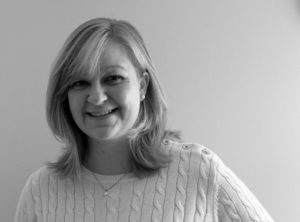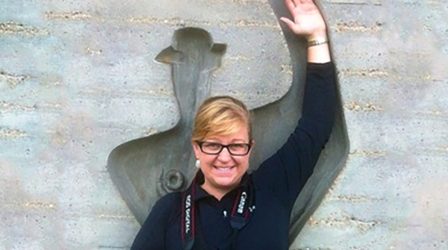The American Institute of Architecture Students (AIAS) is celebrating the 60th anniversary of student excellence in leadership, service and design. In honor of our 60th year, the AIAS is excited to share 60th: Legacy, an ongoing weekly celebration of and thanks to our alumni sponsored by Professional Publications, Inc (PPI). PPI is a publisher of professional licensing exam materials since 1975 and wants to recognize those who have helped the AIAS achieve 60 years of success.
 Name
Name
Danielle Willkens, PhD, Associate AIA, FRSA, LEED AP BD+C
Organization
Auburn University, School of Architecture, Planning and Landscape Architecture
Title
Assistant Professor of Architecture
Connect
Bio
Dr. Willkens is a practicing designer, researcher, and educator who is particularly interested in bringing architectural engagement to diverse audiences through interactive projects. She holds a B.S. in Architecture and Master of Architecture from Mr. Jefferson’s University of Virginia, a M.Phil in Architectural History & Theory from Cambridge University’s St. John’s College, a Graduate Certificate in Historic Preservation from Savannah College of Art & Design, and most recently completed her PhD in Architectural History & Theory from University College London’s Bartlett School of Architecture. After spending the last few years designing and studying in London, Dr. Willkens returned to the U.S. and now teaches studio and architectural history at Auburn University’s School of Architecture, Planning, and Landscape Architecture.
In terms of built work, she was the Project Manager for the Learning Barge, the University of Virginia’s innovative design-build project for a floating classroom and sustainable field station on the Elizabeth River. The project was funded by grants from the Environmental Protection Agency, the National Council of Architectural Registration Boards, Lowe’s Charitable and Educational Foundation, and the National Endowment for the Arts. Vested in the development of architectural education, she served on the Board of Directors for the National Architectural Accrediting Board and has worked with Duke University’s Talent Identification Program (TIP) for several years in hopes of contributing to early intervention design education initiatives that encourage students’ engagement with architecture during formative years in primary and secondary school.
From summer 2016 through late spring 2017, she will be on a year-long adventure sponsored by the Society of Architectural Historians’ H. Allen Brooks Travelling Fellowship, traveling to Iceland, Cuba, and Japan to study the impact of tourism on cultural heritage sites.
ARE Prep Tip: What is one piece of advice that you would give to those starting to test?
Gather a support group of friends and peers to help you stay on track and tackle the ARE. Make a schedule and keep to it!

How did your experience with AIAS help you to achieve your goals?
AIAS helped cultivate leadership skills and encouraged me to be an advocate for my own education, my peers, my school, and those who do not have a voice, whether it be by choice or circumstance. Grassroots and FORUM were energizing events that provided the momentum to accomplish tasks at the chapter and regional levels, but they were also venues to interact with amazing peers across the country. Now, years down the road, I am so proud and excited about the work those AIAS peers are accomplishing: some are mayors, PhDs writing code for analyzing cities, global entrepreneurs, Rose Fellows, educators, and practitioners who are challenging the conventions of the profession to build better structures, office cultures, and communities. AIAS provides an extensive and long-lasting network of peers who are wonderful resources and inspiring figures.
What and/or who shaped you into who you are and what you do today?
I have an incredibly supportive family and although none of them are involved in fields related to the built environment, they have always encouraged my interests. They are continually understanding of the long and odd hours I spend on my work, they recognize the passions I have for building, researching, and teaching; and they are always good sports when I pitch an architecturally-themed trip. They value travel, education, and curiosity, truly embodying the Jeffersonian ideal of being life-long-learners.
What is one tip you would give yourself in your 20s?
I would tell myself to take more moments of pause and to take every opportunity to travel, whether it be a local trip or something farther afield. When I was at the University of Virginia I tried, whenever possible, to sit on the Rotunda steps or take a ride to Skyline Drive; I wish I did this more when I was studying in London or working in DC. We’re often so busy with school, jobs, and extra commitments that we don’t take the time to look up from our screens and enjoy our surroundings. In terms of travel, every afternoon excursion, road trip, and adventure abroad opens our eyes to new people and cultures, adds to our visual record, and helps us see our own experiences and ambitions with a different perspective.
How have you overcome unforeseen challenges through your career?
I’m a big fan of the concept of ‘sliding doors’: sometimes what we perceive as a missed opportunity, or even a crushing letdown, can actually present a promising, new pathway that is even more exciting and rewarding than your original ‘plan’. When things are going well, take a moment to reflect and identify those sliding doors, recognizing the new prospects ahead because you took a chance and worked through challenges.
What is a decision or action you made in school that influenced your trajectory?
In graduate school, I applied to serve as a student member on a NAAB visiting team. It was an extraordinary experience to get to examine another school so closely and it reinforced my developing desires to pursue a career in academia. This experience also helped illustrate that involvement in AIAS is a wonderful springboard for being engaged in the other collaterals of the architectural profession.
If you, or another AIAS alumni you know, deserves recognition for their contribution to the profession and society at large, please use the link below to nominate them for this honor.











